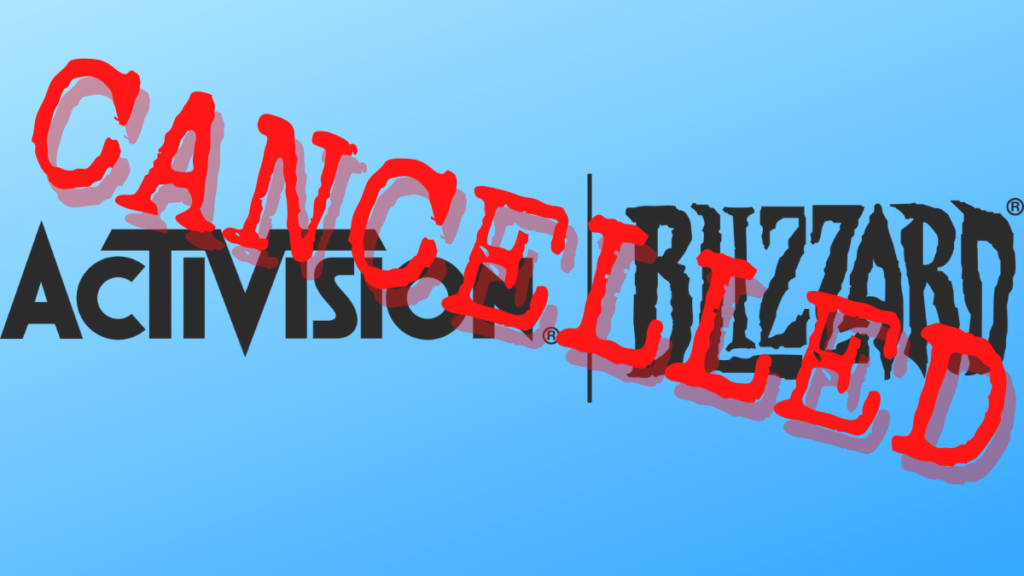Every gamer who has spent more than a handful of hours playing online games knows full well the harassment that can come from other players, unwarranted or not. What most gamers don’t experience, however, is the harassment that can occur behind the screen within the game’s company itself.
Game developers and production companies are no strangers to allegations of harassment or disenfranchising behavior. Between Ubisoft’s mishandling of sexual abuse allegations, or Riot Games’ mass employee walkout over workplace harassment, the video game industry is, unfortunately, one that has perpetuated cultures of behind-the-scenes sexism and abuse for decades.
The latest company in the industry to come under fire is no other than Activision-Blizzard (AB), who just this past week had a class-action lawsuit filed against them by hundreds of its employees — most of whom identify as female — citing allegations of the company fostering a toxic “frat boy” culture in its workplace environment. This environment, as the lawsuit alleges, was one in which AB’s female employees were not only subjected to consistent sexual harassment, but also rampant sexism as they were promoted less frequently and given lower pay rates than their male colleagues.
To add further troubling details to this, the lawsuit also claims that AB’s female employees were “subjected to constant sexual harassment” which the company’s top executives not only knew full well about and failed to prevent, but also actively retaliated against female employees who spoke out against it. AB initially denounced these allegations, claiming that the lawsuit included, “distorted, and in many cases false descriptions” of the company and its employees’ past behavior.
Since AB released this statement, nearly 1,000 of the company’s current and former employees alike have signed an open letter to AB’s leadership, calling the company’s statement “abhorrent and insulting.” While some of AB’s executive leaders have since shifted their initial tone, such as Activision’s President Rob Kostich calling the described culture “deeply disturbing” and Blizzard’s President J. Allen Brack noted them as “extremely troubling,” other leaders have only doubled down on their initial statement and criticism of the allegations against the company. Last Friday, Fran Townsend, AB’s Executive Vice President called the lawsuit “truly meritless and irresponsible,” echoing her company’s initial claims that the lawsuit’s language was “distorted and untrue.”
However, events escalated this past Tuesday when the company’s employees stated that the “words and actions” of the company’s leadership did not reflect their values. A day later, thousands of AB’s employees staged a walk-out protest of the company, its leadership, and the actions of both in the lawsuit’s wake.
While AB’s internal HR and PR teams are undoubtedly still scrambling to regain control of the situation, one thing remains clear: AB, its leadership, and its internal culture have cast a shadow on their company and its products, leaving gamers and fans the world over scratching their heads as to what will happen next.
What should come next, however, is an agreement to meet the four demands drawn out by AB’s employees who helped to organize and participate in this week’s walkout. According to NBC, the four demands are as follows:
-
“End mandatory arbitration clauses in employee contracts,” as the organizers say they “protect abusers and limit the ability of victims to seek restitution;”
-
“Adopt policies to improve diversity, equity and inclusion (DEI);”
-
“Publish compensation data, promotion rates and salary ranges for employees of all genders and ethnicities, and;”
-
“Hire a third party to audit the company’s structure, human resources department and executives.”
Coinciding with these demands, the organizers of the protest clarified that it remains imperative to not only identify how AB’s internal systems and structures have failed the company’s employees but also to propose and implement new solutions to address and remedy those failed systems.
Thankfully, many of AB’s own customers have aligned their stance with that of the company’s employees. Fans of the company’s hit games (which include titles like Call of Duty and World of Warcraft), many of whom have created platforms for themselves centered around content based on these titles, have utilized their platforms to speak out against AB and the behavior of the company’s leadership towards its employees.
What many gamers — particularly those who are not as familiar with AB or its video game portfolio — might fully appreciate is the silver lining of unity that the lawsuit has caused to emerge. When a company’s employees and customers are able to stand together and demand full institutional change, the power of that company (and that of the abusers within it) becomes diminished. In their demands to fully audit AB’s internal systematic abuse, the company’s employees and fans serve to further prove the point that the video game industry is long overdue for a DEI overhaul.
